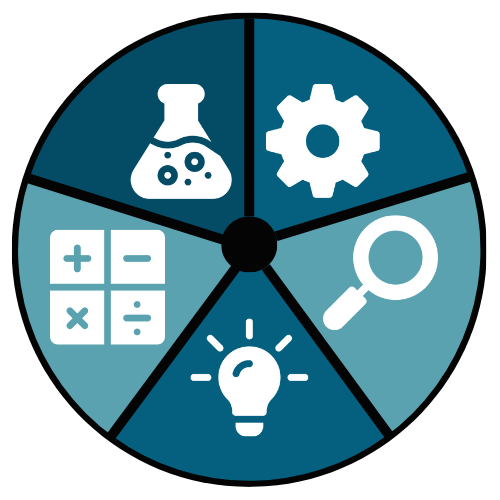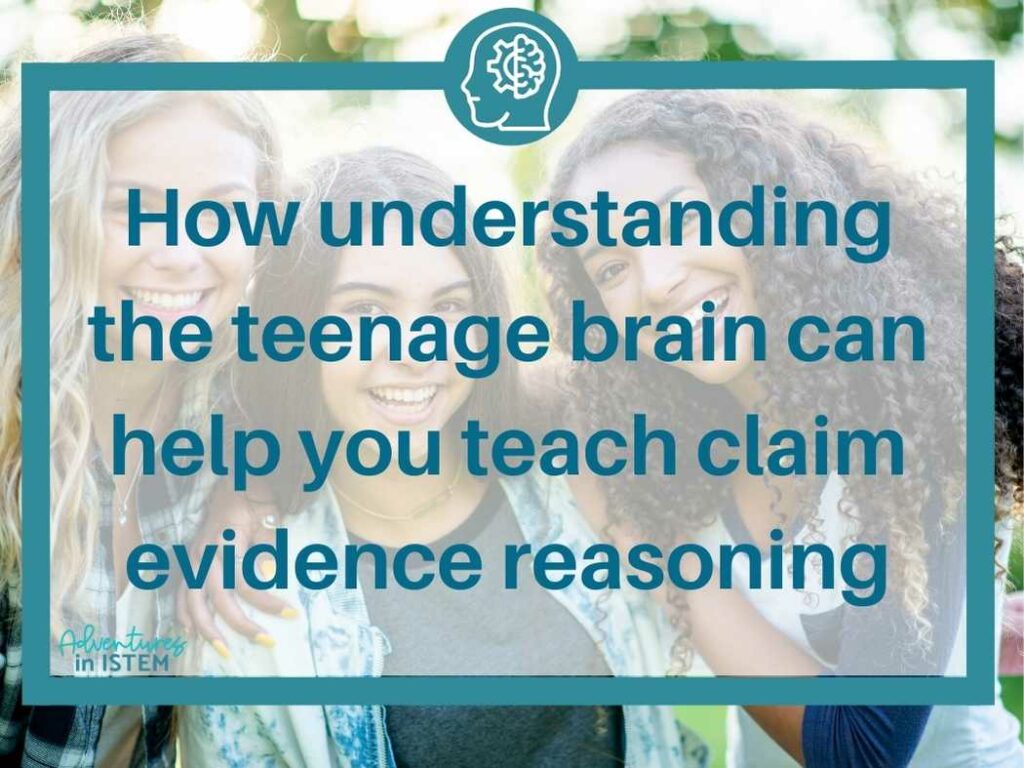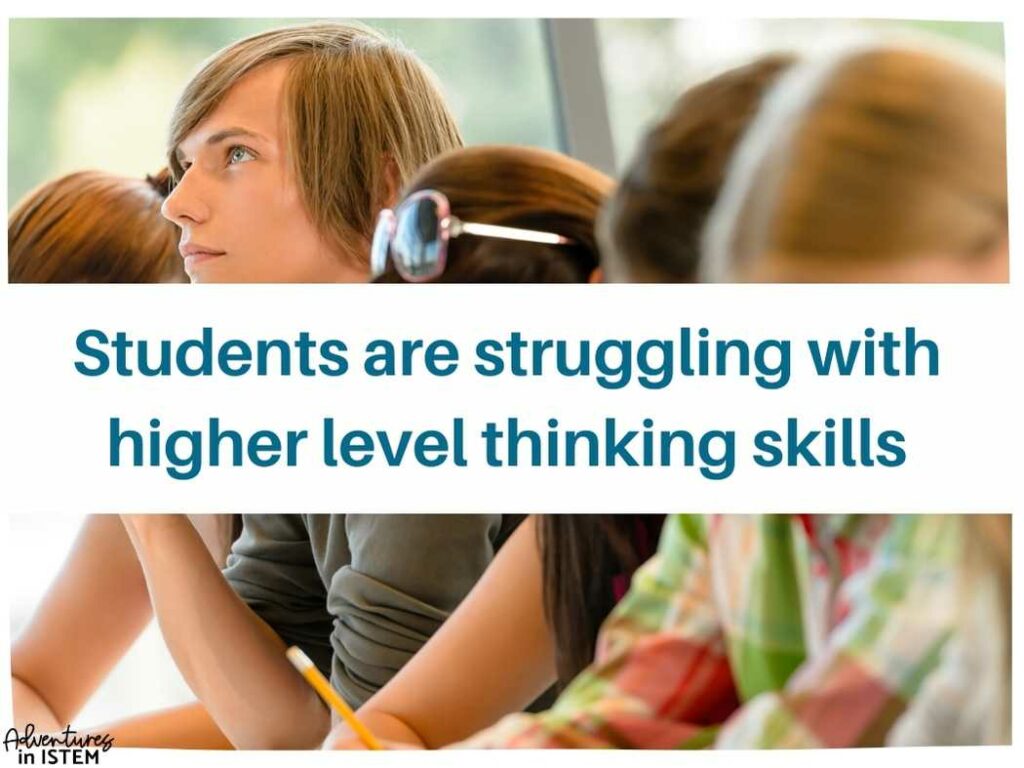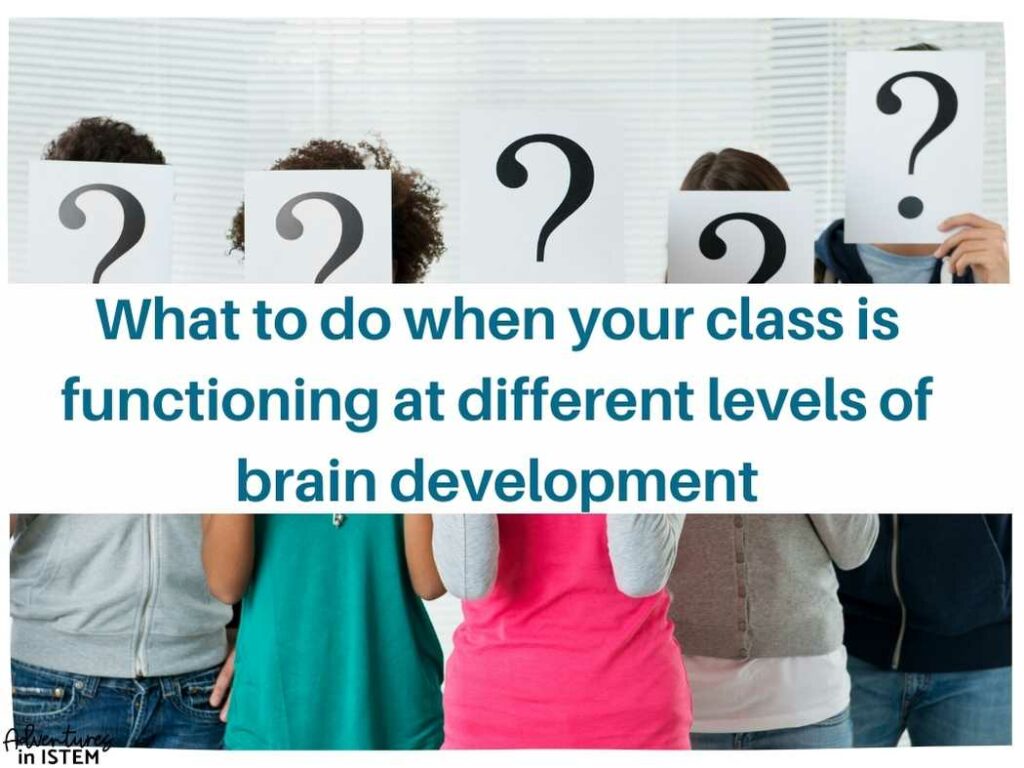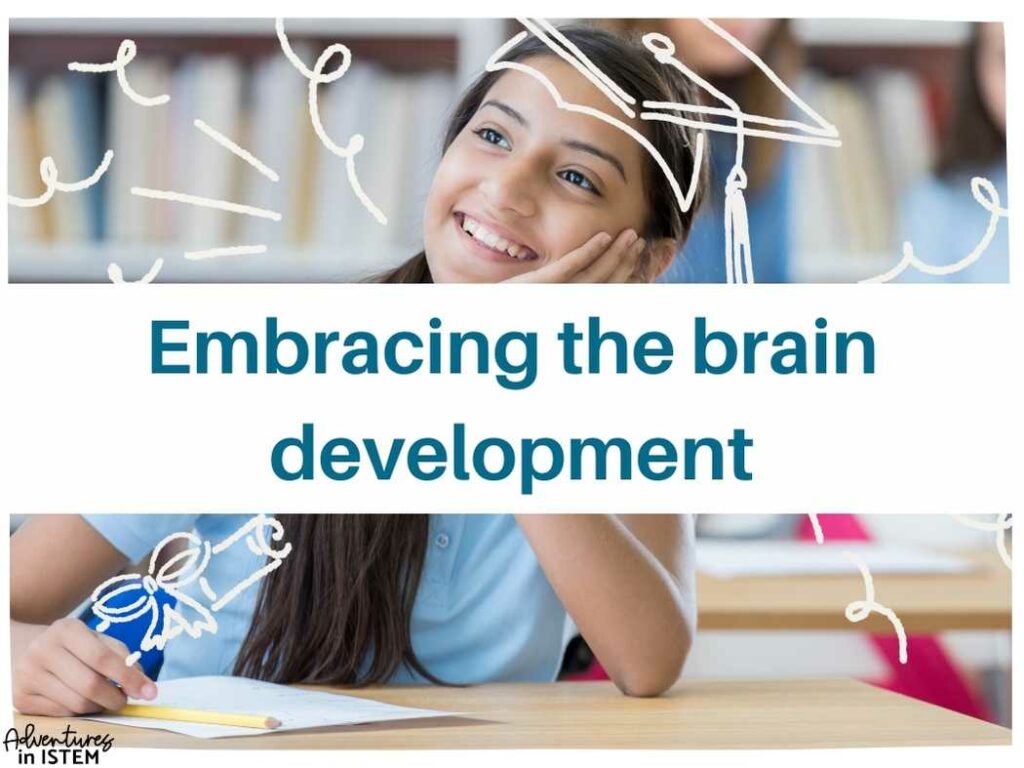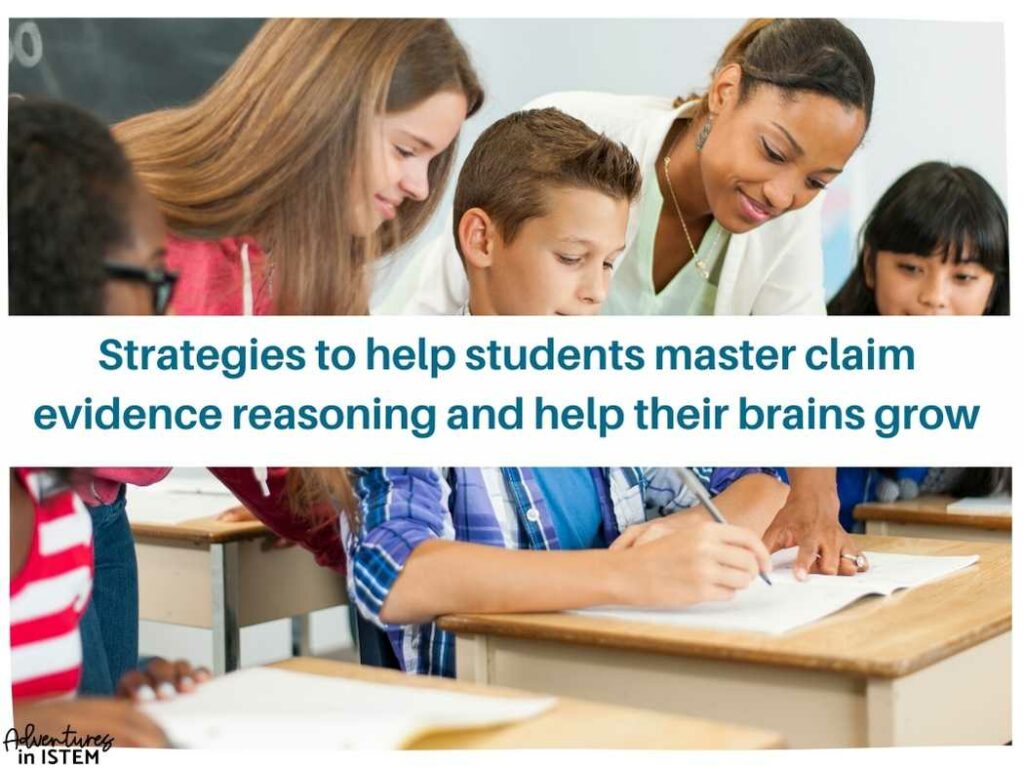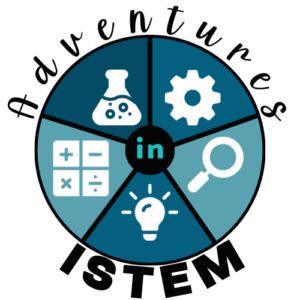Middle school presents unique challenges as students grapple with higher-level thinking skills. As classrooms adapt to meet evolving educational needs, it’s clear that many students struggle with tasks requiring advanced cognitive abilities.
Understanding why some students struggle with analyzing data, problem-solving, and making critical decisions—essential components of the claim evidence reasoning format—while others seem to navigate these tasks easily, often boils down to the intricate rewiring of their teenage brains.
While this rewiring presents exciting growth opportunities, it can also pose challenges. In this blog post, we explore the role of adolescent brain development in shaping students’ capacity for critical thinking, and we offer practical strategies to help educators support their journey toward mastery.
Let’s explore the role of adolescent brain development in shaping students’ capacity for critical thinking, and come up with practical strategies to help support our students journey toward mastery.
Students are struggling with higher level thinking skills
Engaging middle school students in educational activities often involves starting with foundational tasks like memorizing definitions and labeling diagrams, which typically come relatively easily to them.
Similarly, basic exercises in comparing and contrasting two concepts are within their grasp. However, the difficulty level spikes noticeably when it comes to more complex cognitive tasks such as analyzing, explaining causality, or devising solutions to problems.
This challenge becomes particularly evident when students are tasked with analyzing diagrams and graphs. While they may offer surface-level responses, delving deeper into the intricacies of the information proves to be a formidable hurdle.
This difficulty is underscored by the struggles many students face when attempting to craft claim evidence reasoning (CER) paragraphs. In these assignments, students are not only required to analyze the provided information but also to relate it to their existing knowledge and then formulate their conclusions—a process that demands critical thinking skills and a nuanced understanding of the subject matter.
So what can we do about this?
What to do when your class is functioning at different levels of brain development
In the diverse landscape of middle school, students are navigating not only academic challenges but also the complexities of puberty. This developmental phase marks the onset of significant physical and neurological changes, with each individual progressing at their own pace.
It’s widely observed that girls tend to enter puberty earlier than boys, initiating the transformation of their brains from childhood to adulthood sooner. As a result, the prefrontal cortex, responsible for crucial cognitive functions such as planning, goal-setting, decision-making, and problem-solving, has a head start in its development. Consequently, girls often exhibit more advanced executive function skills than their male counterparts during this transitional period.
This discrepancy sheds light on the common observation of boys appearing more impulsive and facing greater challenges in problem-solving tasks. They are essentially playing catch-up as their brains continue to mature.
Understanding these neurological nuances offers valuable insights into the diverse experiences and behaviors observed among middle school students.
Embracing the brain development
As students transition into middle school, they carry the seeds of self-perception that have already taken root. These perceptions shape their beliefs about their own intelligence and capabilities—whether they see themselves as inherently smart and capable or as lacking in ability and potential.
It’s crucial at this stage to engage them in conversations about the fascinating changes occurring within their brains and the boundless opportunities these changes afford. The evolving nature of their brains means they possess the remarkable capacity to enhance their cognitive abilities and become functionally smarter.
Empowering students with the understanding that they can actively contribute to their brain’s development by employing learning strategies is key. Regardless of where they stand regarding prefrontal cortex development, all students can benefit from adopting techniques that facilitate learning and cognitive growth.
Encouraging them to embrace this mindset fosters a culture of continuous improvement and equips them with the tools to thrive academically and personally.
Strategies to help students master claim evidence reasoning and help their brains grow
Equipping students with an understanding of their brain’s development can significantly aid them in mastering the art of writing claim-evidence-reasoning (CER) paragraphs. Students can leverage this knowledge to enhance their analytical and reasoning skills by recognizing that their brains are continually evolving and adapting, thus strengthening their CER writing abilities.
Firstly, students can utilize their awareness of brain development to approach the analysis of evidence with a critical eye. They can recognize that their brain’s capacity for processing information is expanding, allowing them to delve deeper into the evidence presented. Encouraging students to question the evidence, evaluate its credibility, and identify any underlying patterns or themes prepares them to construct well-supported claims.
Secondly, understanding their brain’s developmental trajectory empowers students to link evidence with reasoning effectively. They can appreciate that their brain’s maturation process enables them to make connections between disparate pieces of information, facilitating the synthesis of coherent arguments. Educators foster the development of robust reasoning skills by encouraging students to articulate the logical connections between the evidence they’ve gathered and the claim they’re making.
Moreover, students can leverage their knowledge of brain development to recognize the importance of practice and iteration in refining their CER writing proficiency. They understand that their brains are plastic and adaptable, capable of strengthening neural pathways through repeated exposure and deliberate practice. Encouraging students to engage in regular writing exercises, receive feedback, and revise their work fosters a growth mindset conducive to continuous improvement.
Ultimately, students can approach CER writing with confidence and efficacy by aligning their writing process with their understanding of brain development. They recognize that their brains are dynamic organs capable of growth and refinement, and by harnessing this potential, they can excel in crafting compelling arguments supported by evidence and sound reasoning.
It’s evident that understanding the intricacies of the developing brain can significantly aid educators in supporting their students.
By equipping students with knowledge about their brains’ continual evolution and adaptability, we lay the foundation for enhanced analytical and reasoning skills.
To support students on this journey, we have created already prepared claim-evidence-reasoning (CER) practice problems. These resources are designed to challenge students while providing the scaffolding necessary for their cognitive development.
By engaging in regular practice and incorporating strategies that align with their evolving understanding of brain development, students can strengthen their analytical and reasoning skills, ultimately mastering the art of crafting compelling arguments supported by evidence.
Together, let’s empower our students to embrace the journey of cognitive growth and unlock their full potential as confident, articulate thinkers. Get started with our CER practice problems today and witness the transformative impact on student learning and engagement.
You might also like:
* BREAKING DOWN THE CER: HELPING STUDENTS MASTER CLAIM EVIDENCE REASONING IN SCIENCE
